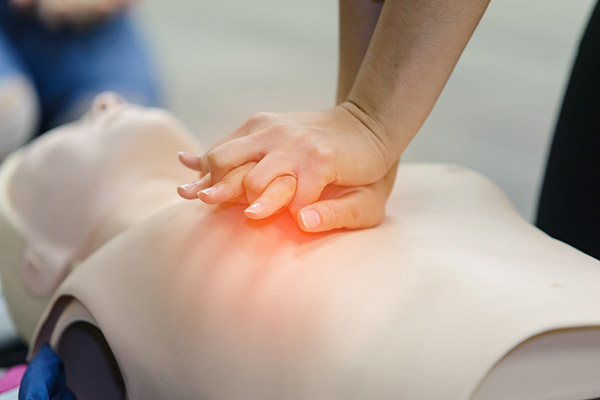Cardiopulmonary resuscitation (CPR) is a skill that can truly be the difference between life and death in critical situations. Whether you’re a healthcare professional, teacher, parent, or just a responsible citizen, holding a valid CPR certification is paramount. However, CPR guidelines and techniques evolve over time, so it’s essential to ensure your skills are up-to-date through regular certification renewal. In this comprehensive guide, we will walk you through the process of renewing your CPR certification, highlighting its importance, frequency, where to renew, and what to expect during the renewal process.
Why Renew Your CPR Certification?
You might wonder how to update my CPR certification and why it’s necessary to renew it.
CPR techniques and guidelines are not static; they adapt based on the latest research and medical findings. This means that the CPR skills you acquired a few years ago may not be the most efficient or recommended method today. Renewing your CPR certification guarantees that you are utilizing the most current and evidence-based techniques to provide the best possible care in emergencies. Here are some compelling reasons why renewing your CPR certification is vital:
Ensure Effectiveness: By renewing your certification, you’ll learn the latest techniques and updates in CPR, which can significantly increase the effectiveness of your life-saving efforts. Techniques that were considered best practice a few years ago may have been replaced by more efficient methods.
Legal Requirements: In many professions, such as healthcare, education, and public safety, maintaining a valid CPR certification is a legal requirement. Failing to renew your certification can result in the loss of your job or legal consequences.
Confidence: Knowing that you are well-prepared and up-to-date with the latest CPR guidelines will boost your confidence when faced with an emergency situation. This confidence can make a crucial difference in your ability to perform effective CPR.
Save Lives: Ultimately, the primary reason to renew your CPR certification is to save lives. When you know the most current techniques and can apply them correctly, you increase the chances of survival for someone experiencing cardiac arrest or another life-threatening event.
How Often Should You Renew Your CPR Certification?
The frequency of CPR certification renewal varies depending on your profession and the specific requirements of your workplace. Here are some general guidelines to help you determine how often you should renew your certification:
Healthcare Professionals: Healthcare providers, such as doctors, nurses, and paramedics, are often required to renew their CPR certification every two years. This frequency ensures that they are well-versed in the latest guidelines and techniques.
Non-Healthcare Professionals: For non-healthcare professionals, such as teachers, coaches, and daycare providers, the recommended renewal interval is typically every one to two years. This timeframe helps individuals stay current and confident in their CPR skills.
General Public: Even if you’re not required to maintain a CPR certification for your job, it’s a good idea to renew it every two years. Being prepared to respond to emergencies is a civic responsibility, and regular renewal ensures that you’re ready to help when needed.
Where Can You Get Certified?
There are several options for renewing your CPR certification, including in-person classes, online courses, and blended learning options. Here’s a breakdown of each:
- In-Person Classes:
In-person CPR classes are conducted by certified instructors and offer hands-on training in a classroom setting. These classes provide opportunities to practice CPR skills on mannequins and receive immediate feedback from instructors. Many organizations, such as the American Heart Association and the American Health Care Academy, offer in-person online CPR certification courses.
- Online Courses:
Online CPR courses offer the convenience of learning at your own pace and on your schedule. These courses typically consist of video lessons and interactive quizzes. However, keep in mind that most online courses also require an in-person skills evaluation component to ensure that you can perform CPR correctly.
- Blended Learning:
Blended learning combines online coursework with an in-person skills session. This option provides the flexibility of online learning and the hands-on practice of in-person training. Blended learning courses are often a convenient choice for those with busy schedules.
The CPR Certification Renewal Process:
The CPR certification renewal process typically involves the following steps:
Choose a Course: Select the CPR certification course that best fits your needs and schedule. Consider factors such as whether you prefer in-person or online learning and the availability of courses in your area.
Register and Pay: Enroll in the chosen course and pay the registration fee. Prices may vary depending on the type of course and the organization providing the certification.
Complete the Coursework: If you’re taking an online or blended learning course, complete the required coursework, including watching videos, reading materials, and taking quizzes. Make sure to thoroughly understand the latest CPR guidelines and techniques.
Attend the Skills Session (If Applicable): For courses that require an in-person skills session, attend the scheduled session at the designated location. During this session, you’ll have the opportunity to practice CPR techniques on mannequins and receive feedback from an instructor.
Pass the Exam: In most CPR certification courses, you’ll need to pass a written exam to demonstrate your knowledge of CPR principles. Review the course materials and take the exam with confidence.
Receive Your Certification: Upon successful completion of the course and exam, you will receive your CPR certification card, which typically remains valid for the specified renewal period (e.g., two years).
In conclusion, renewing your CPR certification is a crucial step in maintaining your ability to save lives in emergency situations. It ensures that you are equipped with the latest CPR techniques and guidelines, boosts your confidence, and may even be required by your profession. By following the guidelines in this comprehensive guide, you can stay prepared and make a significant difference when it matters most. Remember, CPR certification renewal is not just a responsibility; it’s a commitment to making the world a safer place for everyone.


 Home
Home








